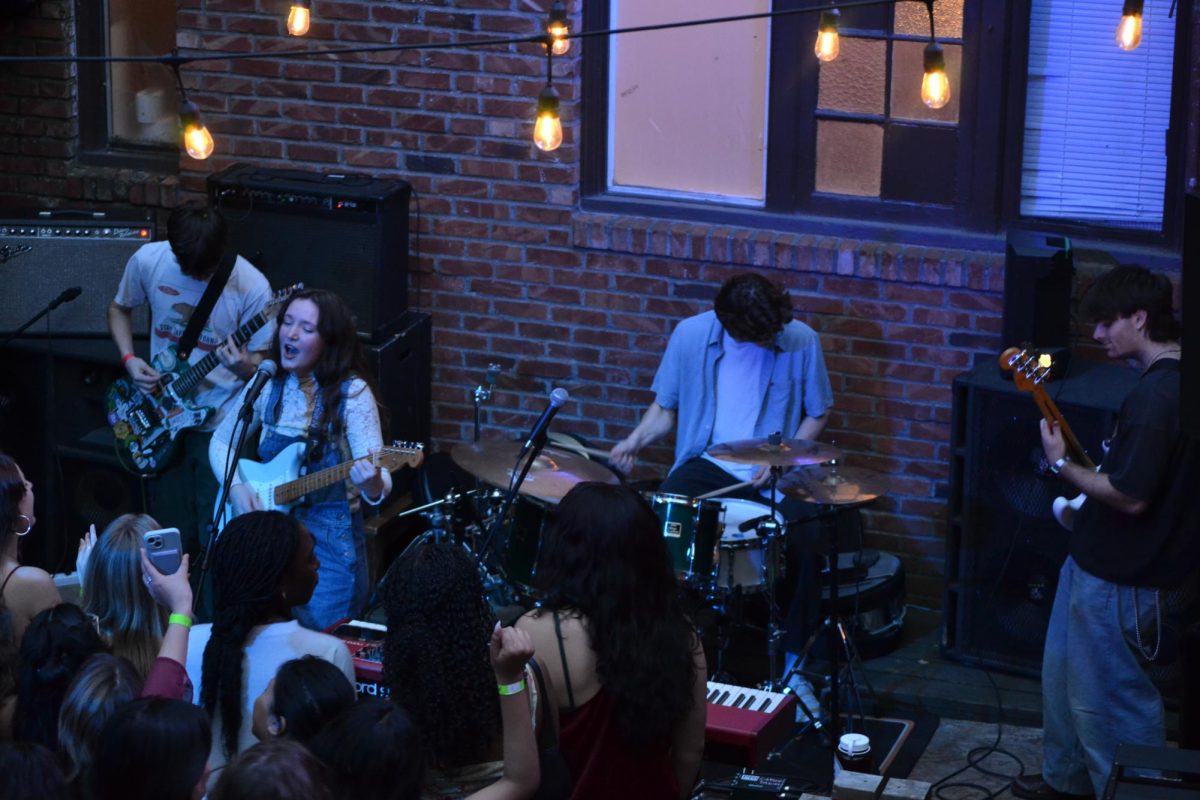
Latreia and Operation Nightwatch aim to open students’ minds to service
When people walk into Operation Nightwatch, a program working to support homeless individuals in Seattle, they are eager to have someone to talk to after spending a day being ignored by the public.
After 15 years of working with people who have been disregarded by society, volunteer coordinator for Operation Nightwatch program Tonnette Winston believes that simply saying “Hello” or “Good morning” to someone who is homeless is a small action that can completely change a person’s day.
“Don’t treat them like they are invisible,” Winston said. “You don’t have to offer them money or do anything, you just have to acknowledge them.”
Giving back to the community does not always include time or money, it can just be a small act of compassion that goes a long way for someone in need.
On Saturday, Jan. 26, students volunteering with Latreia did spend in time giving back to the Seattle area. Students were sent out to three different locations, including Operation Nightwatch.
Nestled in the heart of the Central District, Operation Nightwatch helps over one hundred homeless people find a warm place to stay the night. Nightwatch opens its doors to those in need every night, and serves about 45,000 people per year.
Winston recognizes that homelessness is a complex issue, but her and her organization do what they can to ease the burden.
“We can’t save everybody, so what I like is that people come here and they know we are available to give them information and answer questions,” Winston said. “We are not trying to solve their life problems, we are trying to get them through the night.”
With only seven full-time employees, Operation Nightwatch is highly dependent on volunteer help. Although they do not provide housing themselves, Nightwatch does provide a hot meal, protection from the weather, useful resources and a community.
Alyssa Broberg, the coordinator of Latreia, found their mission both unique and inspiring.
“They care for people in a different way than other shelters do. They provide them what they need to be successful instead of solely providing shelter, and then they try to connect them more,” Broberg said.
Winston herself was inspired to work with Operation Nightwatch after her family member was homeless for a period.
Winston, who also worked as attorney, began to see how systems and circumstances often lead to people losing their homes. She commented on how homelessness is not always driven by drugs or laziness, but that it is often connected to complicated issues like mental health and the inability of felons to access jobs and housing.
Winston hopes that through her work she is able to break down the stigma against homelessness.
“I’m passionate about the people I work with and changing the perspective. I want people to have a human experience,” Winston said. “People are afraid of the homeless and they have these preconceived ideas about why they are homeless, and it’s hard to get people not to judge.”
For students who are not able to spend a Saturday volunteering with organizations like Operation Nightwatch, there are simple, everyday actions that can help those who are affected by homelessness.
“You can be compassionate and acknowledge everyone as a human being,” Winston said. “A kind word or a smile can change someone’s day.”
Winston has hope for the next generation, believing that students today are often more open-minded than those before them. She enjoys seeing young people volunteering and taking time to give back to the community.
Broberg agrees that community service is essential to the development of students today.
“I think students gain a different perspective of how interconnected and diverse Seattle is. It grounds us, seeing our advantages and how the community is so diverse and different and how we can give back,” Broberg said.
There are community organizations all over Seattle that need volunteers and support, but it does not always take an organized effort or a student-led service day to give back.
After 20 years of working with those who have been cast out by society, Winston has developed a simple philosophy that guides her through her work and can be applied to every interaction students have with someone in need.
“Everybody has a story and a journey; we don’t know how people got to where they are, but it’s not up to us to judge,” Winston said.
















































































